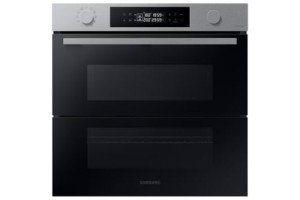Inbuilt Ovens's History History Of Inbuilt Ovens
Understanding Inbuilt Ovens: The Perfect Kitchen Appliance for Modern Cooking
In the ever-evolving world of kitchen appliances, inbuilt ovens have actually become a preferred option for house owners and culinary enthusiasts alike. These sophisticated appliances promise not just practical efficiency however also serve as a visually pleasing addition to modern-day cooking areas. This short article looks into the different elements of inbuilt ovens, discussing their types, functions, advantages, and FAQs.
What is an Inbuilt Oven?
An inbuilt oven, also known as a built-in oven, is a cooking device that is developed to be integrated into the kitchen cabinetry of a kitchen. Unlike freestanding ovens, inbuilt ovens are set into the wall or under the counter top, supplying a streamlined and contemporary look. This combination permits an easier cooking experience and better kitchen organization.
Kinds Of Inbuilt Ovens
When picking an inbuilt oven, numerous types deal with various cooking preferences and requirements. The following are the most common types:
Single Inbuilt Ovens:
- These are standalone units using one cooking chamber. They are ideal for smaller sized kitchens or people who prepare less frequently.
Double Inbuilt Ovens:
- Featuring two independent cooking chambers, double ovens enable for cooking several meals at various temperatures at the same time, making them ideal for families or those who entertain typically.
Compact Inbuilt Ovens:
- Smaller in size, compact ovens fit neatly into tighter areas and can be integrated into kitchen islands or lower cabinetry.
Steam Ovens:
- Using steam as a cooking technique, these ovens preserve the nutrients and moisture in food, offering much healthier cooking options.
Convection Ovens:
- Equipped with a fan and exhaust system, convection ovens flow hot air for even cooking, making them efficient for baking and roasting.
Wall Ovens:
- Wall ovens are specifically designed to be built into a wall, conserving space while improving accessibility.
Microwave Ovens:
- While not typically categorized as an oven, a built-in microwave can be included into the cabinetry for quick cooking and reheating.
Table 1: Comparison of Inbuilt Oven Types
Oven Type
Cooking Chambers
Perfect Use
Advantages
Single Oven
1
Small homes
Space-efficient, much easier to set up
Double Oven
2
Large households or frequent cooks
Prepare numerous dishes all at once, more versatile
Compact Oven
1
Small kitchen areas
Conserves area, great for fast meals
Steam Oven
1
Health-conscious cooking
Keeps nutrients, suitable for veggies and fish
Stove
1
Baking and roasting
Even cooking, minimizes cooking time
Wall Oven
1
Space-saving style
Easy access, contemporary visual
Built-in Microwave
1
Quick heating and cooking
Hassle-free, saves counter area
Secret Features of Inbuilt Ovens
Inbuilt ovens come geared up with different functions that improve the cooking experience. Below are some key functions worth thinking about:
- Self-Cleaning Options: Many inbuilt ovens use self-cleaning cycles that make maintenance much easier.
- Digital Controls: Precise temperature settings and programmable cooking times permit for higher cooking control.
- Smart Technology: Some models offer connection to smart device apps for remote operation and monitoring.
- Numerous Cooking Modes: Various cooking modes, such as baking, broiling, and roasting, improve versatility.
- Safety Features: Included sensing units and timers guarantee that the oven runs securely, preventing overcooking and getting too hot.
- Energy Efficiency: Inbuilt ovens generally consume less energy compared to their freestanding counterparts.
Advantages of Inbuilt Ovens
Inbuilt ovens bring a wide range of advantages to modern kitchens:
Aesthetic Appeal:
- Their streamlined style can flawlessly mix into kitchen cabinetry, raising the total look of the area.
Space-Saving:
- Built into walls or other furniture, these ovens can free up floor area, making kitchens feel bigger and more organized.
Organized Cooking Space:
- With installation choices, they can be positioned at an ergonomic height, making it much easier to keep track of cooking without bending over.
Versatile Cooking Options:
- Many inbuilt ovens included different cooking functions, providing home cooks the capability to check out different recipes.
Potential for Increased Home Value:
- A properly designed kitchen with inbuilt appliances can substantially enhance the appeal and worth of a home.
Frequently Asked Questions About Inbuilt Ovens
Q: Can I install an inbuilt oven myself?A: While some house owners might feel comfortable undertaking the installation, it is normally advised to employ an expert for precise fitting and electrical requirements.
Q: Do inbuilt ovens included warranties?A: Most manufacturers provide warranties ranging from one to several years, depending on the brand and design. Always inspect the guarantee conditions before acquiring.
Q: Are inbuilt ovens more pricey than freestanding ovens?A: Inbuilt ovens can be more pricey due to their style and installation requirements, however the rate typically reflects the added features and visual appeal.
Q: What power supply do inbuilt ovens need?A: Most inbuilt ovens need a devoted electrical connection, typically 230V – 240V. Speak with the manufacturer's requirements for the exact requirements.
Q: How do I preserve an inbuilt oven?A: Regular cleansing, following the maker's directions for self-cleaning choices, and regular look for wear and tear can help preserve the oven's condition.
Inbuilt ovens represent an ideal blend of performance and design for the contemporary kitchen. With different types and features readily available, these appliances not just boost the cooking experience however likewise add to a cleaner, more organized space. By understanding built-in oven and hob packages offered and their fundamental benefits, house owners can make educated choices to raise their culinary journeys. As kitchens continue to evolve, investing in a high-quality inbuilt oven can cause greater convenience, performance, and total pleasure in cooking.
